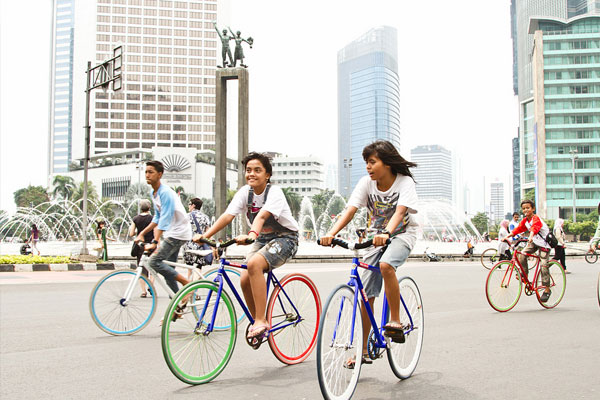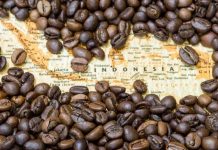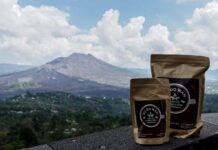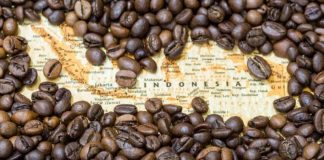When coming to live in Jakarta for the first time most expatriates are concerned to know what health care facilities are available in the city in case of illness. There are some increased risks of disease associated with living in a developing tropical country, however if you take sensible precautions, use common sense and take personal responsibility for your health and that of your family you should stay healthy.
Here is some advice to help you minimize the likelihood of falling ill.
• Never drink water from the tap. The tap water in your home originates from either a well on your property or the city municipal supply lines, and as it is untreated, and because we are in a tropical environment, it contains bacteria and pollutants which make it very unfit for consumption.
• It is perfectly acceptable, however, to use tap water for showering, as well as for dishes, laundry and household cleaning. Some women add a small amount of disinfectant such as Dettol to the bath water before taking a bath, or before giving small children long baths.
• Use commercially bottled water (or if unavailable, boiled, filtered water) for drinking, cooking, making ice cubes, rinsing vegetables, brushing teeth, contact lens care, first aid and cleaning any kind of wound. Always request bottled water when drinking outside the home, except at more upscale restaurants and hotels where the water they provide with your meal is fine.
• You may elect to boil your own water rather than buy the commercially bottled water. If you choose this method, make certain that you boil the water rapidly for at least 20 minutes (the amount of time required to kill the most resistant parasites), and then pass it through a filter system. Boiling water alone will not remove particle contamination. Many types of filter systems are available in Jakarta, ranging from the old-fashioned ceramic filter/dispensers to more modern and expensive methods.
• In Jakarta you will encounter a wonderful and vast array of fruits and vegetables in both the Western-style supermarkets as well as in the traditional markets. These fruits and vegetables may be enjoyed and appreciated; however it is very important to treat all produce before consumption.
They must be disinfected with a special solution in order to kill any parasites found on the produce. The only exception to this rule is produce that can be peeled such as onions, bananas, pineapple, melons and the local rambutans. Everything else should be treated. Pay special attention to leafy greens and broccoli, and anything that will be eaten fresh and raw. The following is the suggested method for cleaning your produce:
1. Scrub vegetables and fruit with liquid vegetable detergent (available in most supermarkets) using tap water initially.
2. Rinse the produce several times to remove soap.
3. Soak produce in a mixture of bottled water and an anti-bacterial solution, following the instructions listed on the product. These solutions can be found in supermarkets and some pharmacies.
4. Soak the produce for 20-30 minutes, paying attention that all surfaces are covered, and taking care that it does not splash, as it will bleach.
5. Dispose of the water-solution mixture, and rinse the produce with clean bottled or filtered water.
6. Air or spin-dry and store in the refrigerator.
• A much simpler method of disinfecting fruit and vegetables is to use an ozonizer: a small electrical appliance that allows you to safely clean fruit and vegetables without the use of chemicals. After rinsing under the tap, fruit and vegetables to be cleaned are soaked in a bowl of bottled water for twenty minutes with a ceramic ring connected to the appliance by a silicon tube that introduces ozone to the water to eliminate pesticides, bacteria, and contaminants. Vegetables treated in this way do not wilt but retain their crispness.
• Make sure that the food that you eat, particularly meat and chicken, is cooked thoroughly.
• Avoid eating food purchased from street vendors, and in particular avoid using the bowls and cutlery they provide.
• Store food hygienically, for example keep herbs and spices in the refrigerator away from heat and keep flour, cereals, and pasta in the refrigerator or freezer to avoid weevils.
• Keep an ice pack in the freezer and bring it with you when you go shopping, along with a thermal pack. This will keep perishables fresh in the event that you are caught in traffic for a long period of time.
• Explain to your domestic staff the importance of personal hygiene and washing hands before handling food. You may wish to have your staff take a food handlers’ class where they can learn how to wash, prepare and store food and how to keep kitchen equipment and utensils clean.
• On arrival in Jakarta take a familiarization tour of the clinic that you plan to use, complete the registration forms for all members of the family and place on file copies of any previous medical records. This will save you time and make it easier if you need to see a doctor. Make sure also that you driver knows where the clinic is.
• Ensure that you and your family maintain all of the required immunizations. If in doubt contact your doctor or clinic.
• Take precautions against mosquito borne diseases by ensuring that there is no water where mosquitoes can breed on your property, installing screens on windows and doors and using mosquito repellent lotion that contains DEET while outside in gardens or places where there may be mosquitoes.
• To prevent fungal and parasitic infections, keep feet clean and dry, and do not go barefoot outside your house.
• Always carry quick drying sterilizing liquid for cleaning your hands whenever necessary.
Provided by: Colliers International






